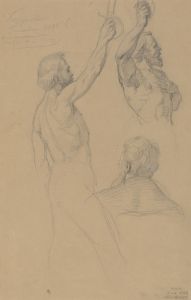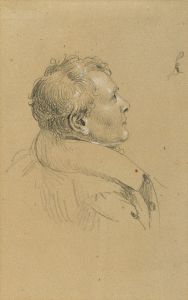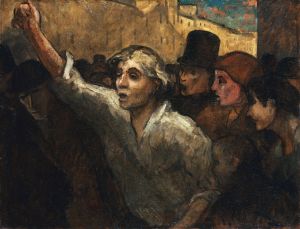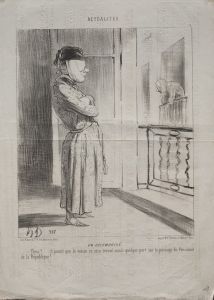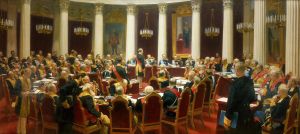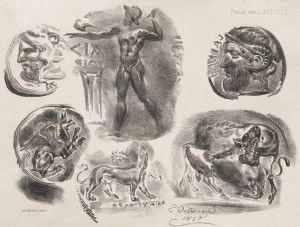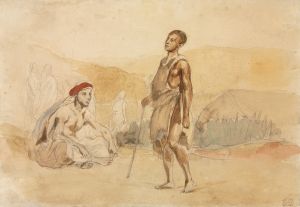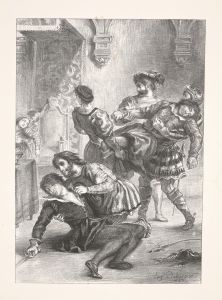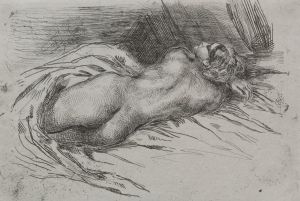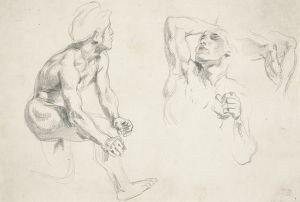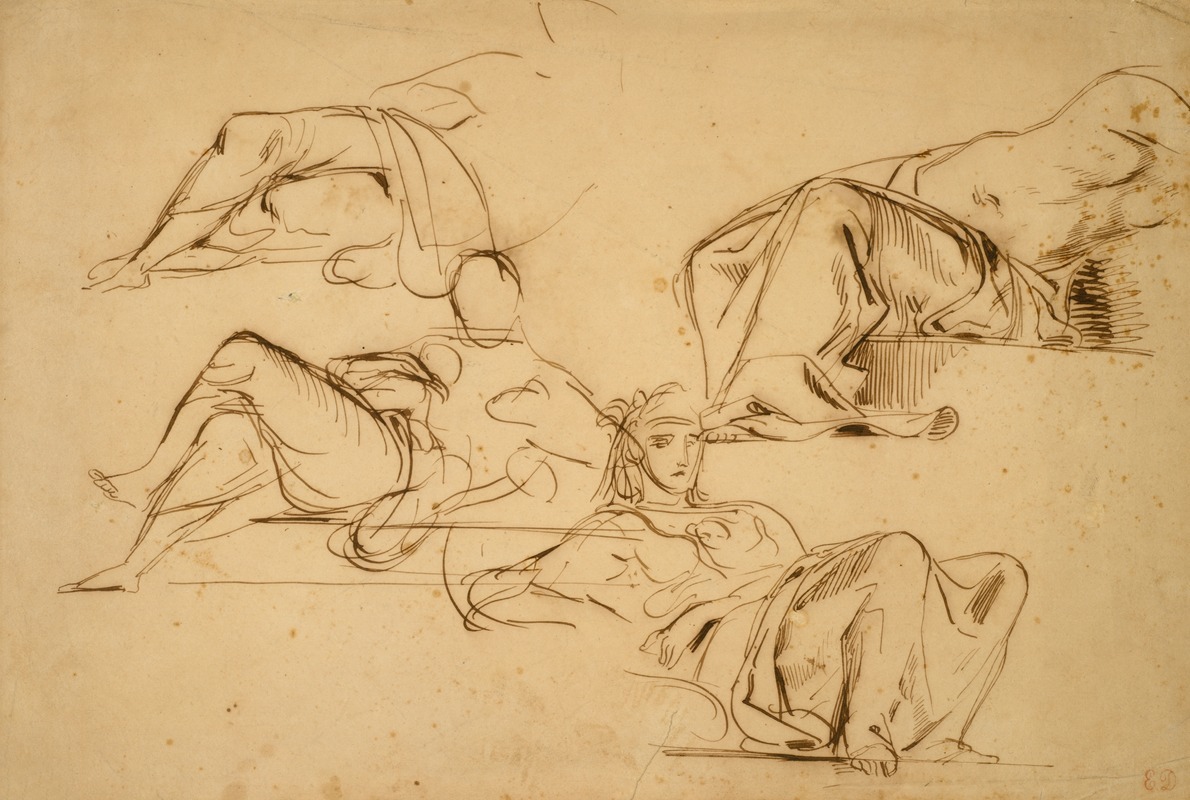
Justice, War, Agriculture, and Industry, Studies for the Palais Bourbon, Paris
A hand-painted replica of Eugène Delacroix’s masterpiece Justice, War, Agriculture, and Industry, Studies for the Palais Bourbon, Paris, meticulously crafted by professional artists to capture the true essence of the original. Each piece is created with museum-quality canvas and rare mineral pigments, carefully painted by experienced artists with delicate brushstrokes and rich, layered colors to perfectly recreate the texture of the original artwork. Unlike machine-printed reproductions, this hand-painted version brings the painting to life, infused with the artist’s emotions and skill in every stroke. Whether for personal collection or home decoration, it instantly elevates the artistic atmosphere of any space.
"Justice, War, Agriculture, and Industry, Studies for the Palais Bourbon, Paris" is a series of paintings created by the renowned French Romantic artist Eugène Delacroix. These works were commissioned as part of the decorative scheme for the Palais Bourbon, which houses the French National Assembly in Paris. Delacroix, known for his vibrant use of color and dynamic compositions, was a leading figure in the Romantic movement, and his contributions to the Palais Bourbon are considered significant examples of his mature style.
The series consists of four allegorical panels, each representing a different theme: Justice, War, Agriculture, and Industry. These themes were chosen to reflect the values and functions of the French state and its legislative body. Delacroix's approach to these subjects is characterized by his dramatic flair and his ability to convey complex ideas through powerful imagery.
"Justice" is depicted as a serene and authoritative figure, embodying the principles of fairness and law. Delacroix's portrayal emphasizes the importance of justice in maintaining social order and the rule of law. The figure of Justice is often shown with traditional symbols such as scales and a sword, which represent balance and the enforcement of legal decisions.
"War" is represented with a more dynamic and tumultuous composition, reflecting the chaos and violence associated with conflict. Delacroix's depiction of War captures the intensity and brutality of battle, as well as the heroism and sacrifice of those involved. This panel serves as a reminder of the destructive power of war and the need for strong leadership and strategy in times of conflict.
"Agriculture" is illustrated through imagery that highlights the importance of farming and the cultivation of land. Delacroix's representation of Agriculture emphasizes the connection between human labor and the bounty of nature. This panel celebrates the hard work of farmers and the essential role of agriculture in sustaining society.
"Industry" focuses on the advancements and achievements of human ingenuity and labor in the industrial sector. Delacroix's depiction of Industry showcases the progress and innovation brought about by industrialization, as well as the transformative impact it has on society. This panel underscores the significance of industry in driving economic growth and improving the quality of life.
Delacroix's studies for the Palais Bourbon are notable for their vibrant colors, dynamic compositions, and the artist's ability to convey complex themes through allegorical figures. These works reflect the Romantic movement's emphasis on emotion, individualism, and the sublime, while also addressing contemporary social and political issues.
The paintings were created during a period when Delacroix was at the height of his artistic powers, and they demonstrate his mastery of both technique and narrative. His contributions to the Palais Bourbon are considered an important part of his legacy and a testament to his skill as a painter and his ability to engage with significant themes of his time.
Overall, "Justice, War, Agriculture, and Industry, Studies for the Palais Bourbon, Paris" by Eugène Delacroix are celebrated works that continue to be admired for their artistic excellence and their thoughtful exploration of key societal themes.







